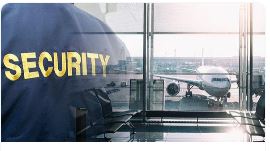Aviation security is a crucial component of the air travel industry, serving as a bulwark against potential threats while ensuring the safety of passengers and crew alike. In the face of evolving challenges, the role of aviation security service providers has become increasingly vital. This article explores the significant impact these providers have on the passenger experience, assessing their roles, challenges, and the innovations that are transforming how air travel is perceived by travelers worldwide.
Understanding Aviation Security Service Providers
Definition and Role
Aviation security service providers encompass a wide range of entities, including government agencies, private security firms, and airport authorities. Their primary responsibility is to safeguard airports and aircraft from security breaches, illegal activities, and terrorism. This involves screening passengers and baggage, monitoring sensitive areas, and implementing emergency response protocols.
Key Providers in the Field
- Government Agencies: In many countries, organizations such as the Transportation Security Administration (TSA) in the United States, and the European Security Agency, oversee aviation security protocols.
- Private Security Firms: Various private organizations offer specialized security services, including screening personnel and technology solutions.
- Airport Authorities: Local airport management has its own security protocols, collaborating with both government and private entities to ensure a cohesive approach.
The Passenger Experience: A Dual Perspective
Security as a Necessary Evil
For many travelers, security checks may feel like an intrusion or an inconvenience. Long lines, extensive baggage checks, and meticulous screening processes can lead to frustration and anxiety. However, these measures are in place to ensure that the flying experience is safe. Herein lies the balancing act faced by aviation security service providers: how to implement rigorous security measures without compromising the passenger experience.
Enhancing Passenger Confidence
While security might initially seem to detract from the travel experience, most passengers appreciate the sense of safety it provides. An efficient aviation security process can lead to higher confidence levels among travelers, knowing that measures are in place to protect them from potential threats. The key is to create a security atmosphere that is unobtrusive yet effective.
The Influence of Technology on Security Services
Modern Screening Innovations
The advent of new technologies has revolutionized airline security operations. Innovations such as automated screening lanes, advanced imaging technology, and artificial intelligence-driven threat detection systems significantly enhance the security process.
- Automated Screening Lanes: These allow passengers to place their bags on a conveyor belt without wait time, effectively streamlining the screening process.
- Advanced Imaging Technology: This enables security personnel to identify potential threats in carry-on baggage more quickly and accurately.
- AI and Machine Learning: Many security systems are now incorporating AI to analyze behavior and detect suspicious activity, leading to quicker responses and fewer false alarms.
The Role of Biometrics
Biometric screening is revolutionizing airport security, allowing for a more seamless passenger experience. Facial recognition systems can expedite the boarding process and reduce wait times at security checkpoints through automation. This technology not only protects travelers but also enhances their overall travel efficiency.
Improving Passenger Communication
Transparent Communication
Effective communication plays a critical role in shaping the passenger experience. Clear messaging regarding waiting times, screening protocols, and airport rules can alleviate anxiety and build trust.
Real-Time Updates
Several airports are now employing SMS alerts or mobile applications that provide real-time updates on security processes, wait times, and gate changes, significantly enhancing the passenger experience. By keeping travelers informed, aviation security service providers make the travel experience smoother and more predictable.
Challenges Faced by Aviation Security Service Providers
Balancing Security and Efficiency
Finding the right equilibrium between rigorous security checks and ensuring efficiency is a persistent challenge. In recent years, an uptick in air travel has put pressure on security infrastructures, leading to longer wait times and sometimes inconvenient experiences for passengers.
Adapting to Dynamic Threats
The threat landscape is consistently evolving, requiring security service providers to adapt swiftly. Continuous training, technology upgrades, and information sharing among stakeholders are essential to stay ahead of potential threats and improve the passenger experience.
Passenger Expectations in the Modern Era
The Demand for Convenience
In today’s fast-paced world, passengers place a premium on convenience. They expect smooth processes that minimize the time spent in security areas. Aviation security providers can improve the passenger experience by leveraging technology to expedite security checks and reduce bottlenecks.
The Importance of Customer Service
Interpersonal skills are paramount in aviation security. Well-trained personnel who exhibit professionalism, empathy, and understanding can significantly enhance the passenger experience, even amidst the stress of security checks.
Case Studies: Success Stories in Aviation Security
Example 1: London Heathrow Airport
Heathrow Airport has implemented numerous technological advancements and customer service training programs aimed at improving passenger experience during security screening. The use of automated lanes and real-time updates via mobile apps has notably reduced wait times and increased passenger satisfaction ratings.
Example 2: Singapore Changi Airport
Changi Airport is widely lauded for its exceptional passenger experience. Their effective security protocols, combined with a strong emphasis on customer service and cutting-edge technology, have made Changi one of the world’s top airports. Travelers frequently comment on the efficiency and ease of their security checks, highlighting the airport’s commitment to passenger experience.
The Future of Aviation Security and Passenger Experience
Trends to Watch
- Increased Use of AI: As artificial intelligence continues to advance, expect more nuanced, data-driven approaches to security checks that can tailor responses based on passenger behavior and flow.
- Greater Personalization: Future systems may leverage big data to create personalized travel experiences, allowing travelers to bypass certain security protocols based on pre-flight screening.
- Sustainability: As environmental concerns grow, aviation security services will need to adopt more sustainable practices, which may also positively affect passenger experience.
Conclusion
While maintaining high security standards, Aviation Security Service Providers also focus on minimizing disruptions to the passenger experience. By streamlining security procedures and utilizing efficient screening technologies, they aim to balance security with convenience for travelers. Learn how they enhance the passenger experience at Aviation Security Service Providers.
LOCATION : United Kingdom
Frequently Asked Questions (FAQs)
1. What are the primary functions of aviation security service providers?
Aviation security service providers are responsible for safeguarding airports and aircraft from security threats, which includes screening passengers and baggage, monitoring airport areas, and implementing emergency response procedures.
2. How has technology impacted aviation security?
Technology has streamlined security processes through innovations such as automated screening lanes, facial recognition, and AI-driven threat detection systems, resulting in faster, more efficient security checks.
3. How do aviation security providers enhance passenger confidence?
By maintaining strict security protocols and employing advanced technologies, aviation security providers foster a sense of safety among passengers, knowing they are being protected against potential threats.
4. What challenges do aviation security service providers face?
Providers must balance the need for rigorous security measures with ensuring efficiency, all while adapting to an evolving threat landscape and growing passenger volumes.
5. What enhancements can we expect in the future of aviation security?
We can anticipate greater use of AI, personalized travel experiences, and sustainable practices as aviation security regards technological advancements and changing passenger preferences.
6. How important is customer service in aviation security?
Excellent customer service can significantly improve the passenger experience during security checks, as well-trained personnel can alleviate stress and enhance satisfaction.







